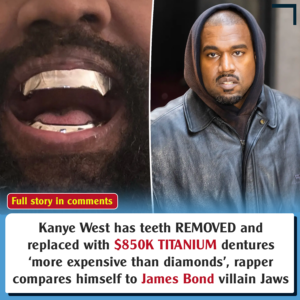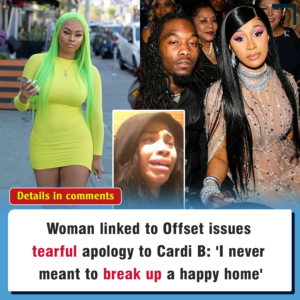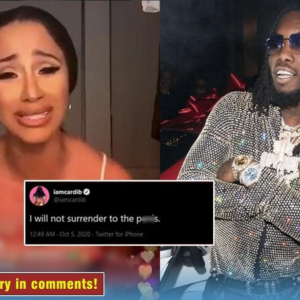“I always want to try and empower other people and people in situations where they feel voiceless and unheard,” said Aguilera on the Call Her Daddy podcast
:max_bytes(150000):strip_icc():focal(499x0:501x2):format(webp)/christina-aguilera-call-her-daddy-040523-2-1723146fef354441a752a2d42892915e.jpg)
Christina Aguilera. PHOTO: CALL HER DADDY
Christina Aguilera is opening up about surviving her abusive childhood.
In a new interview on the Call Her Daddy podcast, the Grammy winner spoke about growing up in a “chaotic” household, witnessing her mother Shelly Kearns be abused at the hands of her father Fausto Aguilera and how it led her to adopt a “protector” mindset.
“I grew up in a chaotic upbringing as a very young child, always feeling like a protector and all that, and always felt isolated in my situation,” said Aguilera, 42, noting that singing became a “release” and “form of expression” for her as a kid.
The “Fighter” musician said she realized her upbringing was unsafe when she started feeling “fear” at home. “You have to listen to your body, and fear is something that you innately feel, so right then and there something doesn’t feel good, and it’s not right,” she explained.
:max_bytes(150000):strip_icc():focal(599x0:601x2):format(webp)/christina-aguilera-call-her-daddy-040523-3-d9eaa8ebf1c74c629c32b960add34258.jpg)
Alex Cooper and Christina Aguilera. CALL HER DADDY
Aguilera developed “so much compassion” for her mother, but the situation still impacts her as an adult. “At 42, I’m still affected by this. It’s under the surface,” she said. “Trauma never leaves you. You just figure out ways to try and heal it, and to me it’s therapeutic to speak about it.”
She recalled seeing her mom “go through so much” and said it “instilled a level of purpose” within her. “I always want to try and empower other people and people in situations where they feel voiceless and unheard. I just have such a deep-rooted need to try and use my voice,” the Playground co-founder said.
The star then spoke about how much “shame” and “anger” comes along with abusive experiences. “It takes a lot for a woman to leave those situations as well, and my heart goes out because some of them don’t leave them, and that could vary in a lot of ways,” said Aguilera. “Sometimes it’s financial, sometimes it’s fear of authorities not helping, and then it getting worse. Sometimes it feels like there’s no way out.”
She recalled going on night drives from New Jersey to her grandma’s house in Pittsburgh with her mom and little sister to escape the abuse. However, there wasn’t initially a clean break in her mother and father’s relationship.
:max_bytes(150000):strip_icc():focal(499x269:501x271):format(webp)/christina-aguilera-02-033123-788b61fa44e546a69bd6f3c9ca5f8100.jpg)
Christina Aguilera. EMMA MCINTYRE/WIREIMAGE
“There was some back and forth. There’s always the tug of like, ‘I’m never gonna do it again.’ There’s sweet-talking involved,” said Aguilera. “There’s a lot of shame also in like, ‘Well, why don’t you just leave?’ It is so much more complicated than that, and it’s a mental breakdown of self-esteem, and you start to believe someone else’s narrative and verbal abuse to you.”
Detailing that abuse can happen to people with various life experiences, she said that “all it takes is for you to believe someone else’s negative narrative about you.”
“That’s why I’m so adamant with my daughter. I’m like, ‘First time somebody ever hits you, the first time somebody makes you feel not right about yourself, [you leave],'” continued the Burlesque star. “I’m so ‘protective mama bear.'”
She recalled feeling “super isolated” after her family moved to Japan for about three years due to her father’s work in the Army and beginning to sing songs from The Sound of Music out a window to find “hope.”
:max_bytes(150000):strip_icc():focal(749x0:751x2):format(webp)/women-inspire-christina-aguilera-022323-c8cbccb92b3e4a458f8a541c41b5ad03.jpg)
Christina Aguilera. CHRISTOPHER POLK/VARIETY VIA GETTY
While living on the Army base, Aguilera witnessed abuse outside of her family as well. “The walls are paper-thin where we’re living, and you can hear abuse happening on the other side of the wall,” she said. “It’s terrifying, and all you want to do is help, but a lot of times even when you call the authorities, you don’t get the help that you need, and then the door shuts and you’re with your abuser again.”
Once her career took off with her winning stint on Star Search and subsequent breakthrough role on The Mickey Mouse Club in the ’90s, she took on the role of financially providing for her family — which was just Aguilera, her sister and their mom at that point.
“When you’re in those situations, you grow up really fast, and you become an immediate caretaker and protector of the person that’s being hurt. So yeah, this is just kind of like my role,” she said. “All my dogs are rescues. I’m just that person that wants to help.”
If you are experiencing domestic violence, call the National Domestic Violence Hotline at 1-800-799-7233, or go to thehotline.org. All calls are toll-free and confidential. The hotline is available 24/7 in more than 170 languages.
If you suspect child abuse, call the Childhelp National Child Abuse Hotline at 1-800-4-A-Child or 1-800-422-4453, or go to www.childhelp.org. All calls are toll-free and confidential. The hotline is available 24/7 in more than 170 languages.





